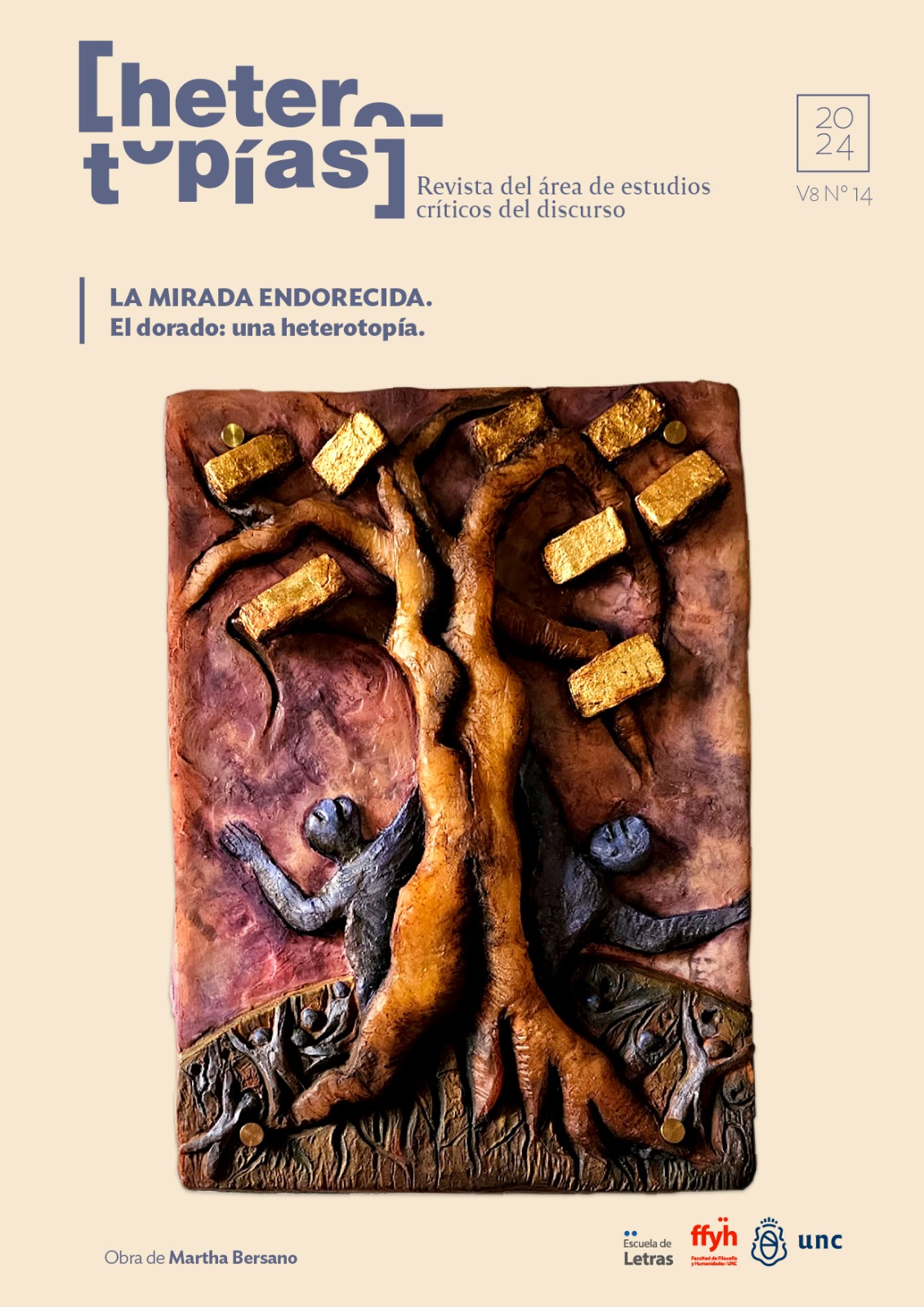The Elusive Promise of El Dorado in the Latin American Literary Imagination
Main Article Content
Abstract
This comparative literary study examines the engagement of contemporary South American writers with the myth of the lost city of gold, known as Manoa or El Dorado. The essay briefly shows how El Dorado became a foundational myth of the South American continent and then illustrates how the “promise of El Dorado” is debunked by literary works published between 1950 and 2008. The authors considered here contrast the colonial depiction of Amazonia as an elusive place of happiness and wealth with the present deforestation of the region and the deracination of its peoples. Each writer employs a tone of ironic, melancholic nostalgia for the mirage of El Dorado to invalidate the myth of Amazonia as a pristine site of riches. In creating an aesthetics of bereavement, the writers offer up a new kind of literature about the Amazon that erodes the master narratives about the region and interrogates the viability of the El Dorado myth in the contemporary era.
Downloads
Article Details

This work is licensed under a Creative Commons Attribution-NonCommercial-ShareAlike 4.0 International License.
Those authors who have publications with this journal, accept the following terms: Those authors who have publications with this journal, accept the following terms:
a. The authors will keep their copyright and guarantee to the journal the right of first publication of their work, which will be simultaneously subject to the Creative Commons Attribution - Non-Commercial - Share Alike (by-nc-sa) Attribution License; no commercial use of the original work or any derivative works is allowed, the distribution of which must be done with a license equal to the one that regulates the original work.
b. Authors may adopt other non-exclusive license agreements for the distribution of the published version of the work (e.g., deposit it in an institutional telematic archive or publish it in a monographic volume) provided that the initial publication in this journal is indicated.
c. Authors are allowed and recommended to disseminate their work through the Internet (e.g. in institutional telematic archives or on their website) before and during the submission process, which may lead to interesting exchanges and increase the number of citations of the published work. (See The effect of open access).
How to Cite
References
Bello, A. (1978) Resumen de la historia de Venezuela. Caracas, La Casa de Bello.
Bunker, S. G. (1985) Underdeveloping the Amazon: Extraction, Unequal Exchange, and the Failure of the Modern State. Champaign: University of Illinois Press.
Carpentier, A. (1953) Los pasos perdidos . México DF, EDIAPSA.
Carpentier, A. (1975) “El mito paradisiaco”, Letra y solfa. Caracas, Síntesis Dosmil.
Carpentier, A. (1999) Visión de América. Barcelona, Seix Barral.
Carpentier, A. (2010) “Prólogo de la primera edición”, El reino de este mundo. México DF, Lectorum.
García Márquez, G. (1983) “La soledad de América Latina”, en La soledad de América Latina y Brindis por la poesía. Cali, Carvajal.
González-Casanovas, R. J. (1990) “Utopian Narrative and Mythical History in Carpentier’s Los pasos perdidos”, Texas Papers on Latin American 90.
Hatoum, M (1979) “Amazônia: Um ciclo de sono e violência, ou, Motocu, o Demônio cumpriu sua missão”, Amazonas, palavras e imagens de um rio entre ruínas. São Paulo, Diadorim.
Hecht, S. (2013) The Scramble for the Amazon and the “Lost Paradise” of Euclides da Cunha. Chicago: University of Chicago Press.
Hecht, S; Cockburn (2010) A The Fate of the Forest: Developers, Destroyers, and Defenders of the Amazon. Chicago: University of Chicago Press.
Hemming, J. (1978) Red Gold: The Conquest of the Brazilian Indians. Cambridge: Harvard University Press.
Kawa, N. (2016) Amazonia in the Anthropocene: Peoples, Soils, Plants, Forests. Austin: Texas University Press.
Kopenawa, D; Albert, B. (2013) The Falling Sky: Words of a Yanomami Shaman. Trad. Nicholas Elliott y Alison Dundy. Cambridge: Harvard University Press.
McNeill J. R; Engelke, P. (2014) The Great Acceleration: An Environmental History of the Anthropocene since 1945. Cambridge: Harvard University Press.
Meggers, B. J. (2001) “The Continuing Quest for El Dorado”, Betty J. Latin American Antiquity. Cambridge: Cambridge University Press. Vol 12. N 3.
Melville, P. 1997. The Ventriloquist’s Tale. New York: Bloomsbury USA.
Miller, S. (2015) An Environmental History of Latin America. Cambridge, Cambridge University Press.
Rodó, J. E. (1947) Ariel. Montevideo, Colombino Editores.
Rodrigues Ferreira, A. (2007) Viagem filosófica ao Rio Negro. Manaus, EDUA.
Rogers, C. (2014) “The Lost Cities of the Amazon: A Conversation with Milton Hatoum”, World Literature Today 88, no. 5.
Rogers, C. (2019) “Notas del viaje a la Gran Sabana (Notes of the Trip to the Great Savannah) by Alejo Carpentier.” Translation and Introduction for “Little Known Documents”, PMLA 134, no. 5 octubre, pp. 1104-1108.
Rogers, C. (2019) Mourning El Dorado: Literature and Extractivism in the Contemporary American Tropics. Charlottesville, University of Virginia Press.
Slater, C. (2002) Entangled Edens: Visions of the Amazon. Berkeley: University of California Press.
Slater, C. (2015) “Visions of the Amazon: What Has Shifted, What Persists, and Why This Matters”, Latin American Research Review 50, no. 3.
Vásquez, P. I. (2014) Oil Sparks in the Amazon: Local Conflicts, Indigenous Population, and Natural Resources. Athens, University of Georgia Press.
